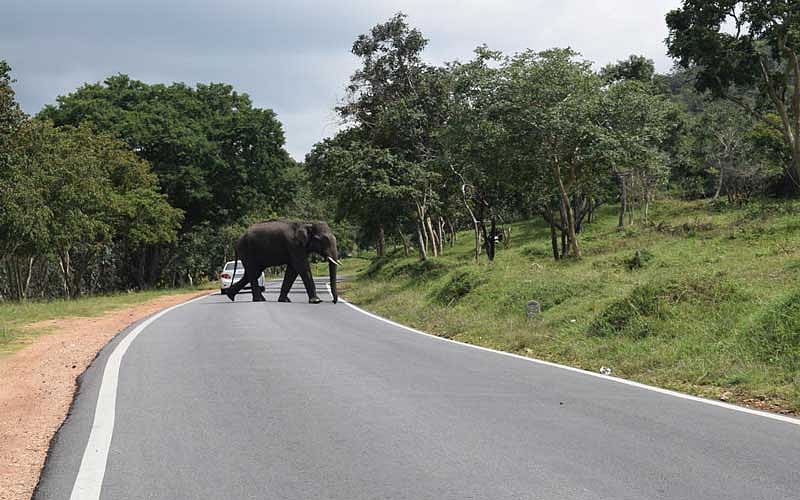
Bandipur National Park, Karnataka: Situated in the southernmost part of Karnataka, in the Chamarajanagar district, the national park is host to a wide variety of flora, fauna, and most importantly, the highest tiger population anywhere in India.
Created in 1941 by merging the former Venugopala Wildlife Park created by the Maharaja of the Mysore Kingdom with nearly 800 sq. km of forest land, the Bandipur National Park became part of Project Tiger in 1973. It has, since then, been home to much of India's tiger population.
The park saw much road traffic owing to its location en route to Ooty, and as a result, many fatalities were reported, caused by vehicles that went speeding through the road at night. As a result, the BJP-led government of the day had banned night traffic in the Park, much to the welcome of citizens and wildlife activists.
CP Yogeeshwara, the forest minister of Karnataka at the time, explained the reasoning behind the ban as such: "We cannot expect animals in the wild to follow traffic rules. We being civilised beings should understand it and take appropriate steps to protect them. Hence, the government has decided to extend the duration of the ban" even as neighbouring states opposed it, but for many years, the ban remained intact, supported by the fall in the number of accident-related fatalities in the Park region during night hours.
Then, in 2017, during the Siddaramaiah government, the Forest department directed all hotels and homestays in Bandipur to deny visitors who burst firecrackers and play loud music as it disturbed the fauna.
2018: The Tiger census. A week-long study of the tiger population in Bandipur sighted 18 big cats in the Park but none were seen in Nagarahole. While Karnataka has the highest number of tigers at 406, wildlife scientists cautioned that the population growth had saturated and the annual growth rate would likely fall below the national average of 6%. Meanwhile, Madhya Pradesh, home to 308 tigers, expressed optimism that the state would regain its 'Tiger State' status, which it lost to Karnataka in 2014.
Early in August, though, things began to get cloudy around night traffic ban in Bandipur with reports of the Central and Karnataka governments agreeing to revoke the ban, even as the matter was being heard by the Supreme Court.
Unsurprisingly, the matter was not taken lightly by citizens, who launched a campaign - ‘Please Save Bandipur Tigers - No Elevated Highway. No Removal Of Night Traffic Ban’ - to convince the HD Kumaraswamy government against revoking the ban.
Under pressure from people who don't want the ban revoked under any circumstances, Forest Minister R Shankar issues a statement and clarifies that the state government is, in fact, not revoking the ban.
Finally, 2 days later, the CM himself breaks his silence - and announces that the ban will remain and that an elevated corridor is not feasible.